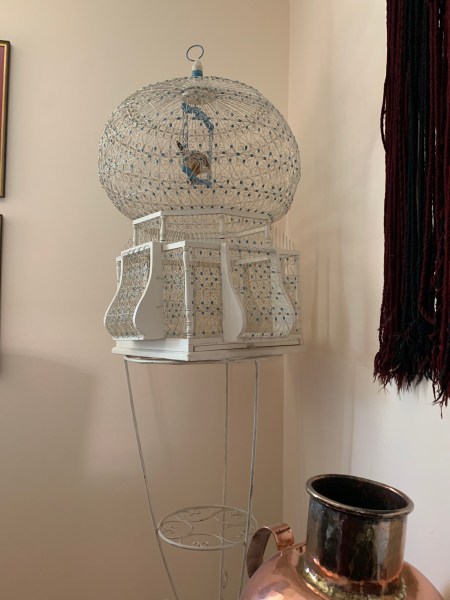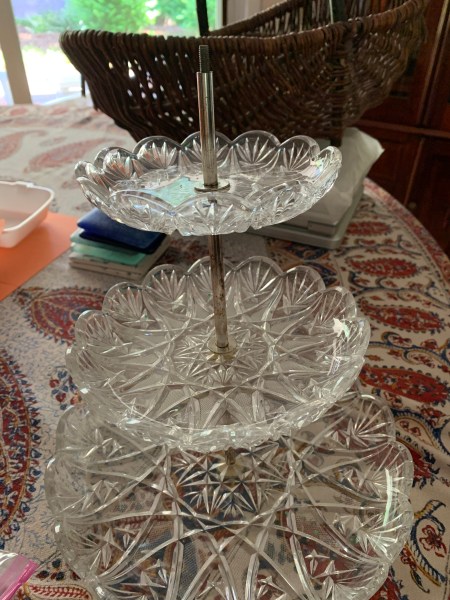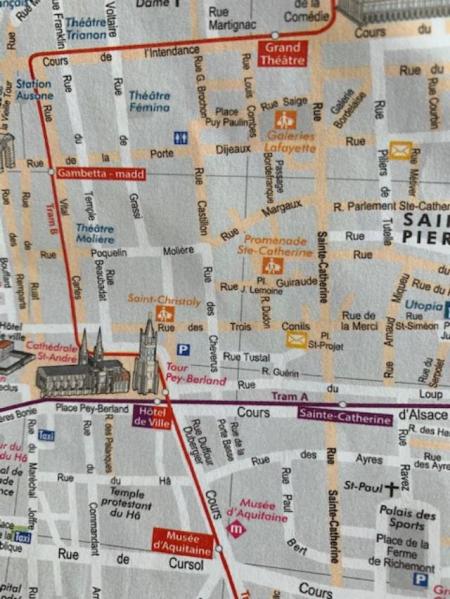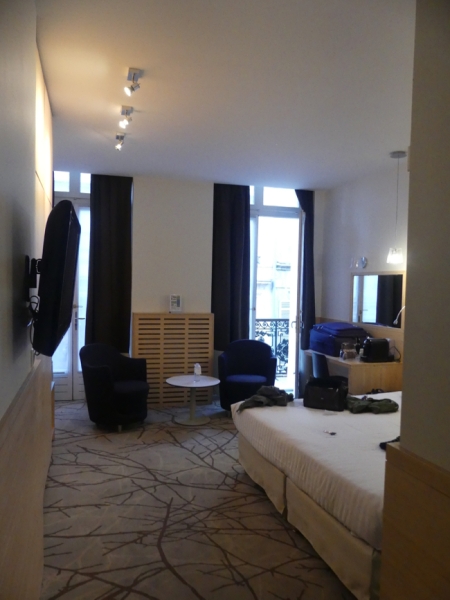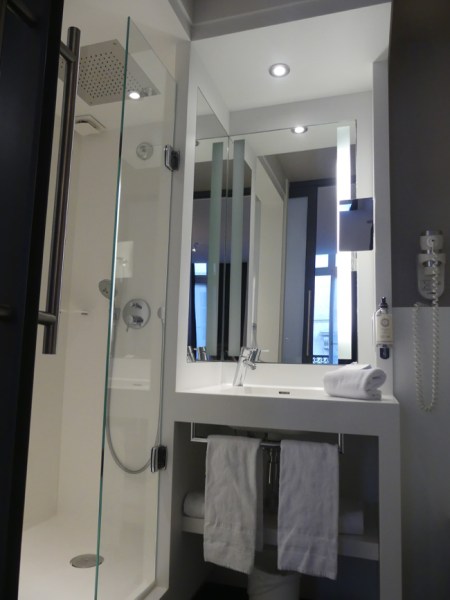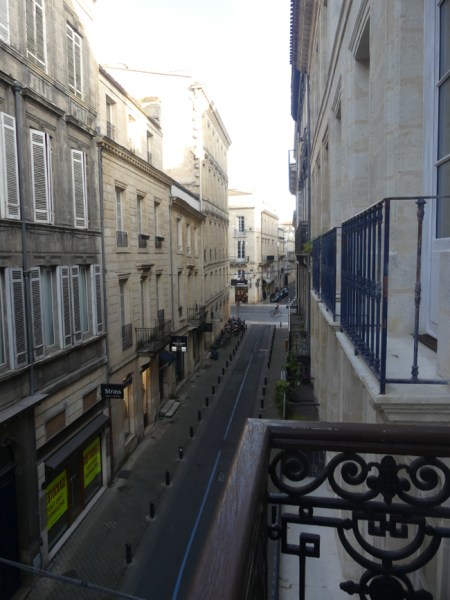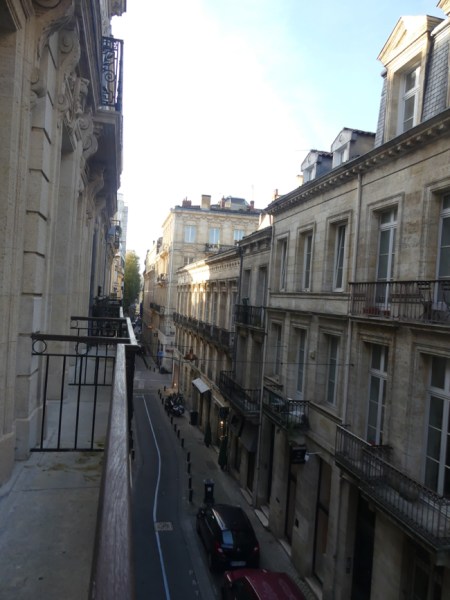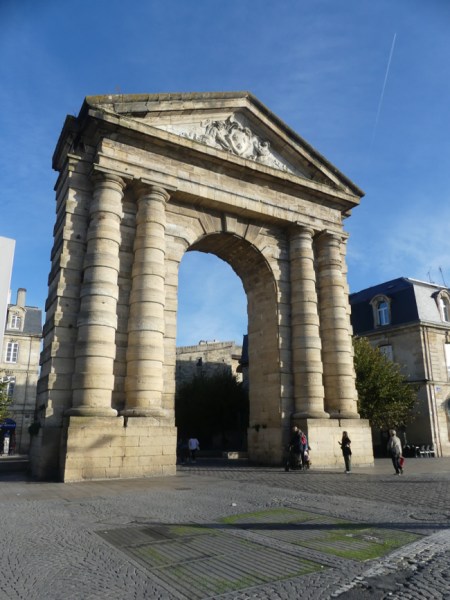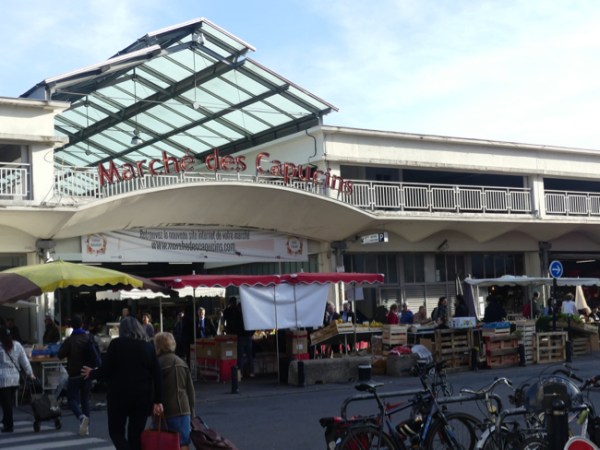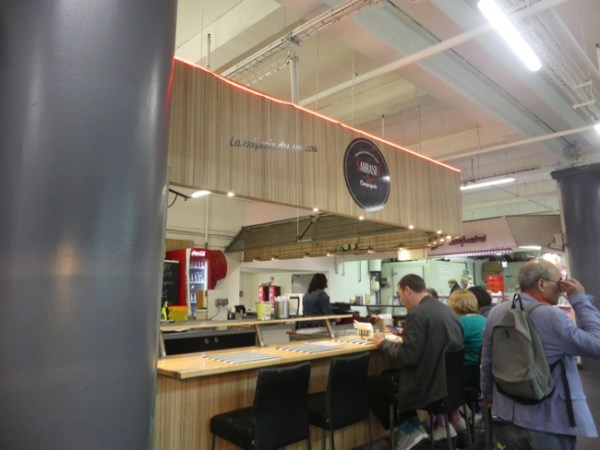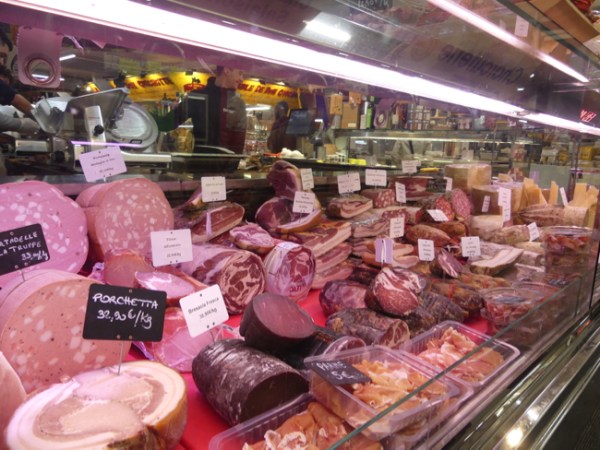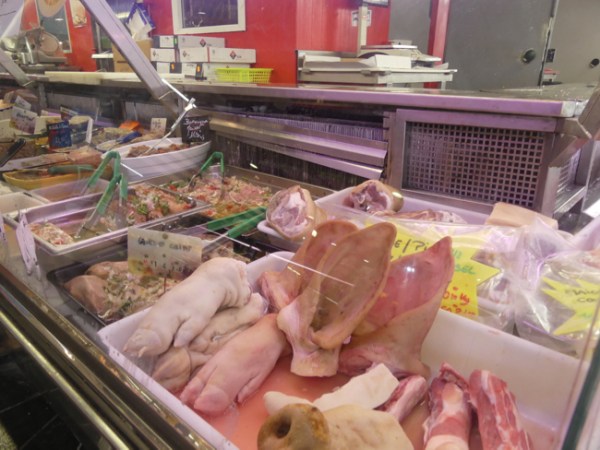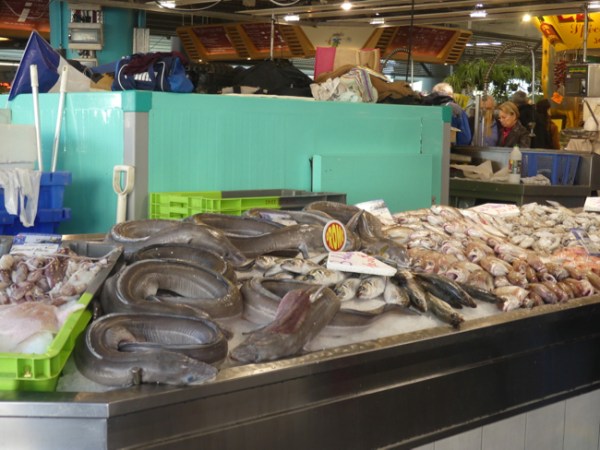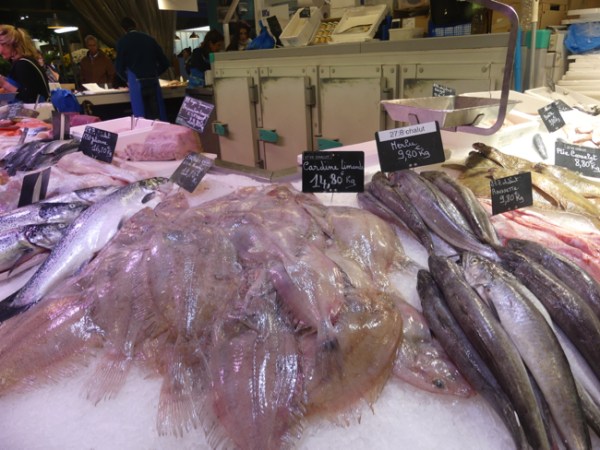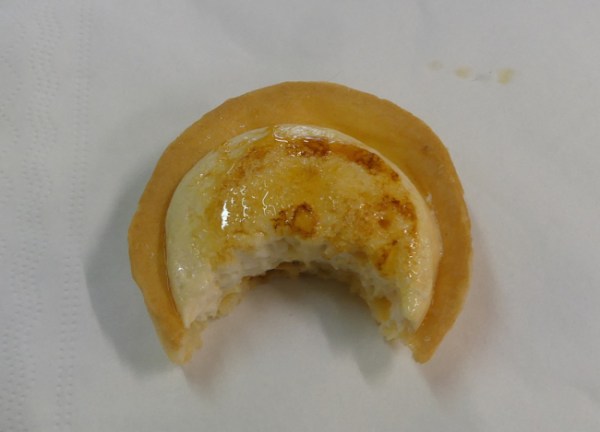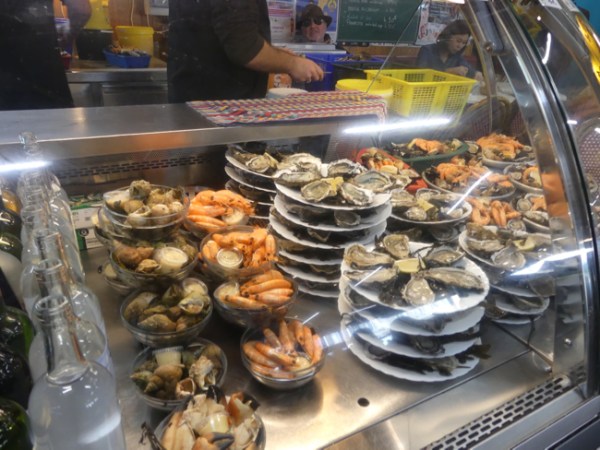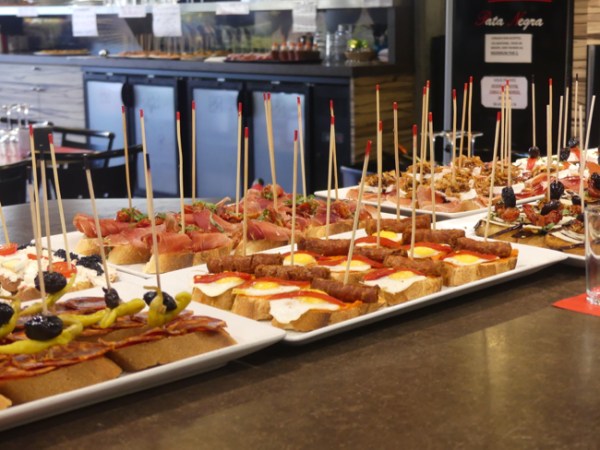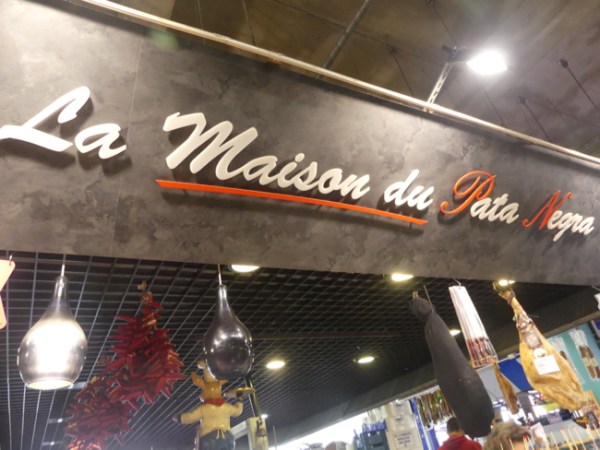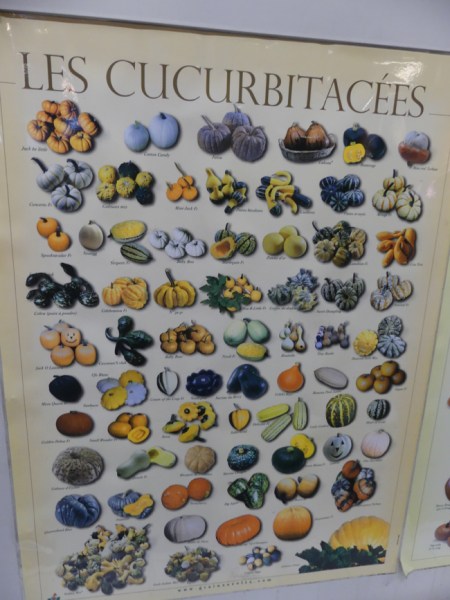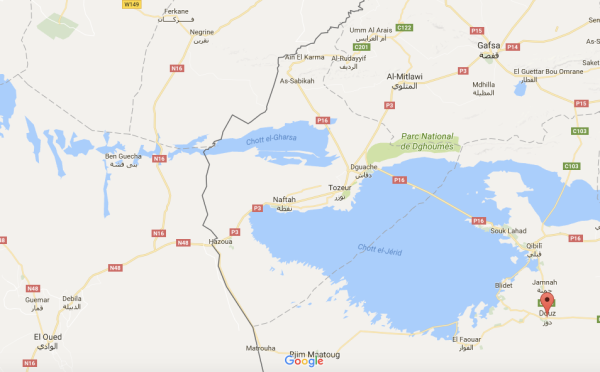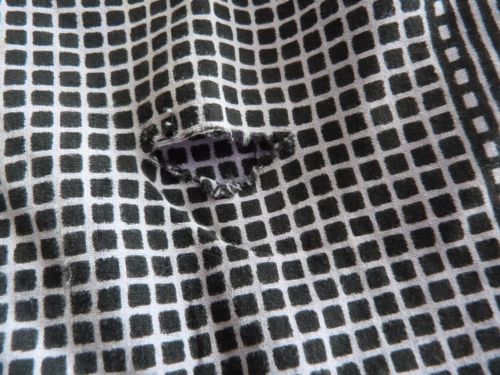Living off My Fat: Adaptation
It probably all started growing up in Alaska, where my mother would measure us in July to order our snowsuits as soon as the new catalogs came out. We lived where ships didn’t come in the winter, so supplies for the winter needed to be ordered – and received – before the ships could no longer navigate the channel.

Then came our life in Germany, where we lived by what my sister called “Commissary rules.” Her one word of advice as a newlywed leaving Germany, while I was staying, was “When you see something in the Commissary or PX you think you MIGHT need, buy it.” Definitely a no-regrets philosophy.
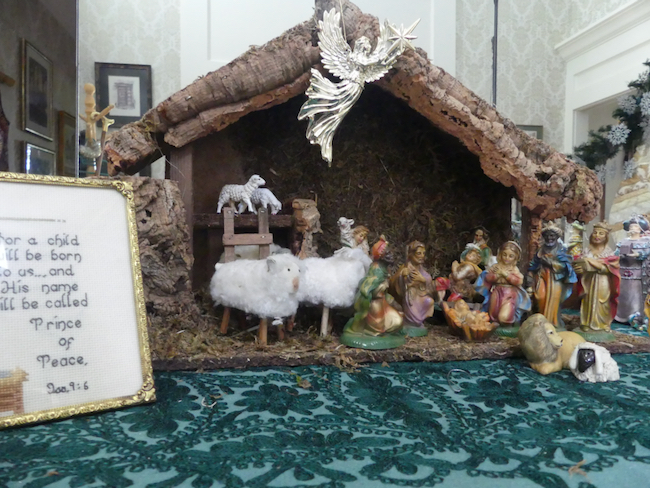
When we were sent to live in Tunisia, in the late 1970’s, we were instructed to take everything we might need for the next two years. Some things – chocolate chips – we learned to live without. We adapted to new foods, new ways of doing things. One of the great treats was the fresh, gorgeous, silky olive oil; I would take my jar to the little olive oil vendor at the nearby souk and he would weigh my jar, fill it, subtract the weight of the jar and charge me for the oil, which made everything taste French.
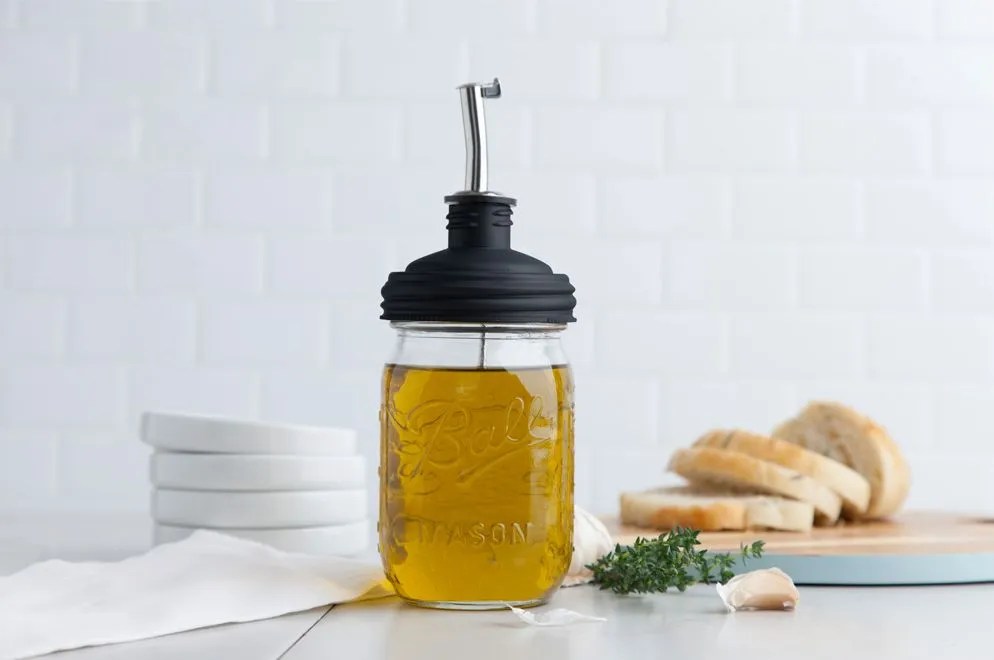
I did have a two-year supply of shoes for a growing toddler, also clothing for him in graduated sizes, and two years of age-appropriate books I could pull out of the closet. We were able to mail-order through the embassy pouch, and my mother was able to mail me little extras. One year, when I was running the Christmas bazaar, she was able to find red and green Christmas fabrics in July, at a discount, and mail them to us for our crafting. It was such a luxury!
In Qatar, I was always bringing back duffels with quilting rulers and rotary cutters for my quilting friends. In Kuwait, it was books for my book club and American sugar for a friend who liked to bake. Kuwait had sugar, but more coarse, and American sugar melts more quickly for a finer result. Who knew?
There are items from the past I still have in abundance – dental floss, women’s underwear, shoes – and staples I buy but no longer use in the quantities I once did because we no longer live a life where we entertain a lot nor prepare for unexpected people on temporary duty who need a meal and an exchange of currency. I am trying to bring down my supplies of artichoke hearts and pimentos, beans and rice, canned tomatoes, chutney, Tupperware and hand soap.

My Little Free Library, one of the best birthday gifts ever, helps me keep my books from overflowing.

We are happy, these days, to be living with less. We are still caught by surprise by rolls of baking parchment we are still using from Kuwait, dental floss leftover from our years in Tunis and an excess of Christmas decorations we still need to pare down. We try to go easy on ourselves. “Ah,” we sigh, “it’s a process.” God grant that we live long enough to use up all those supplies we bought “just in case.”
People Who Smell Like People
I’ve just finished a run and I’m lying flat on the floor under the ceiling fan to cool down. This little Alaska girl is not wired for running in heat and humidity; I run on a running trampoline between the air conditioning outlet and the ceiling fan.
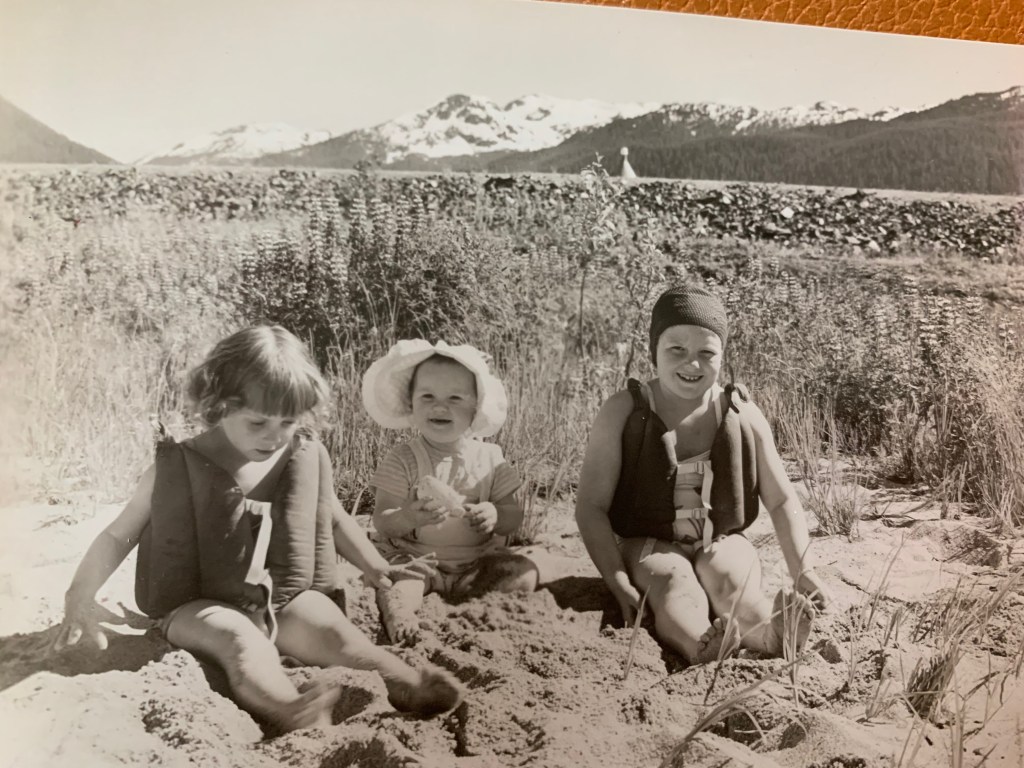
As I lie on the ground, hot and sweaty, the cats can’t get enough of me. Uhtred in particular, loves body smells. When we go on vacation, AdventureMan leaves dirty underclothes to keep him from getting too lonesome. To Uhtred, my sweat seems to be like some rare purfume; he is rolling and bumping on me, purring, kneading, clearly out of his mind with delight.
I find myself thinking back to the days in the early 1960’s when we moved to Germany. The war had been over for years, but it was still a post-war country, where we couldn’t eat ice-cream because there were brucellosus outbreaks among cow herds. And people smelled differently.
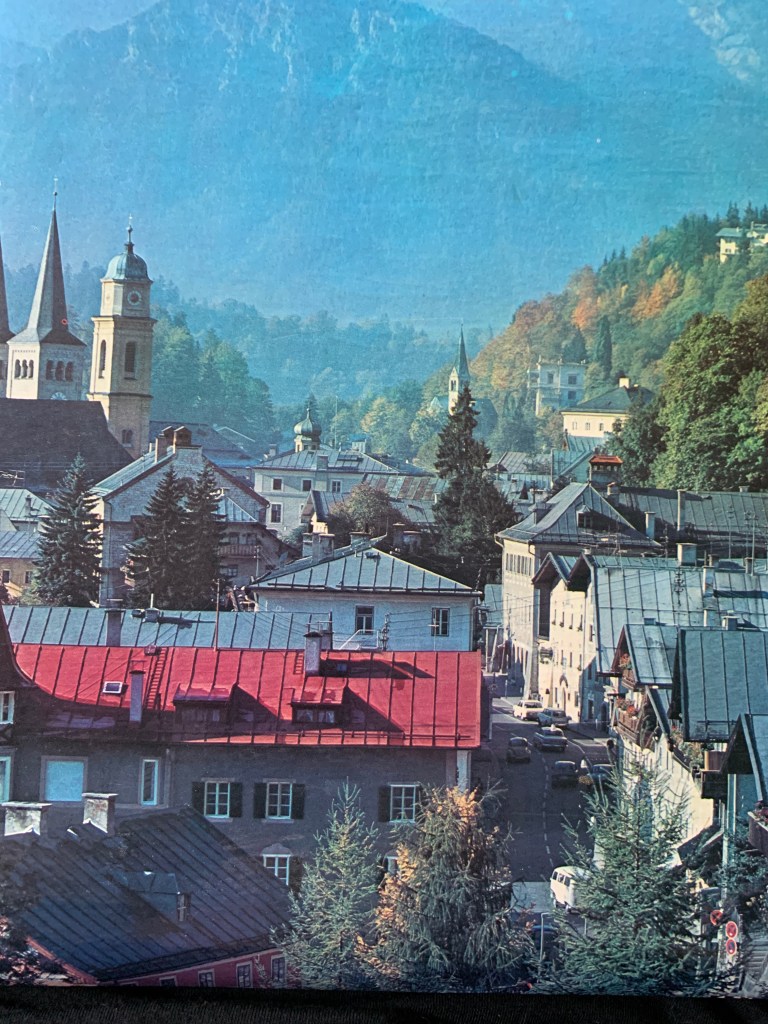
Our first housing was in a hotel on a busy street with a street car, and we learned to take the street car everywhere. For a young teen, it was a world of freedom. But people . . . smelled. We could smell their perspiration. The women didn’t shave and neither men nor women washed or dry cleaned their clothes as often as we did.
As a girl, our culture taught us that we were never to have any smell other than shampoo, soap or a light perfume. As teen-agers, we had an utter horror of perspiration, or any other kind of personal odor.
We got used to it. At some point, we just accepted the difference. It was just a part of riding the streetcar, or shopping, the people smelled like people. We didn’t even think about it.
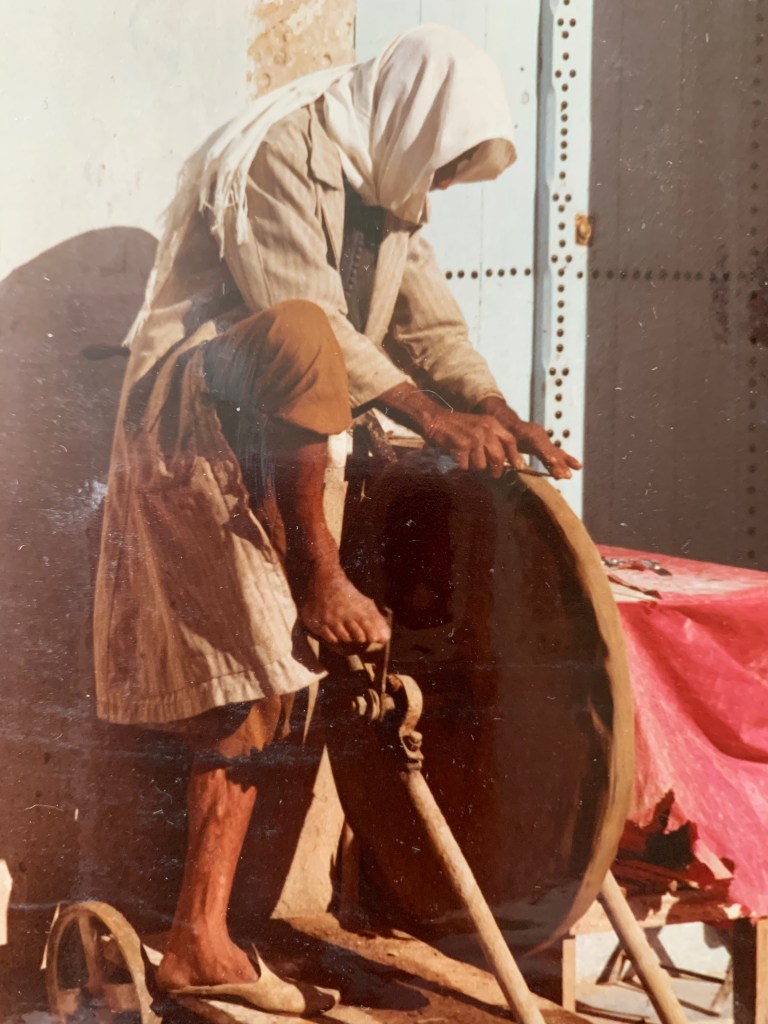
Years later, we found ourselves living in Tunisia, and once again, people smelled like people. We noticed, but we understood and accepted that it wasn’t right or wrong, it was just a difference.
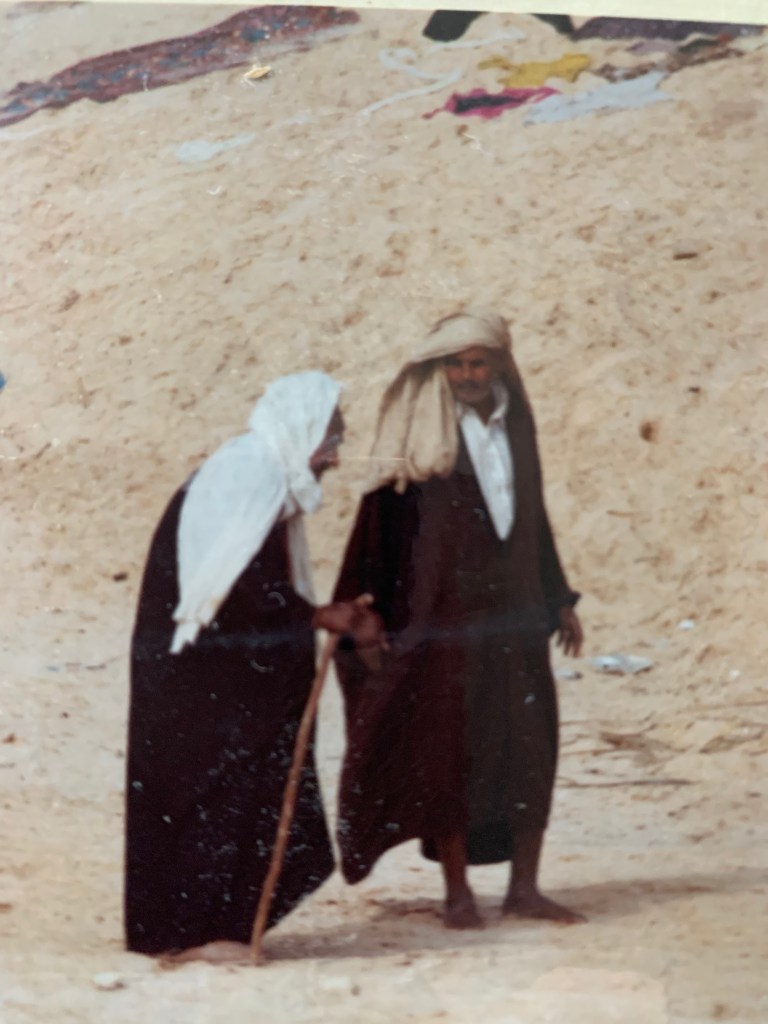


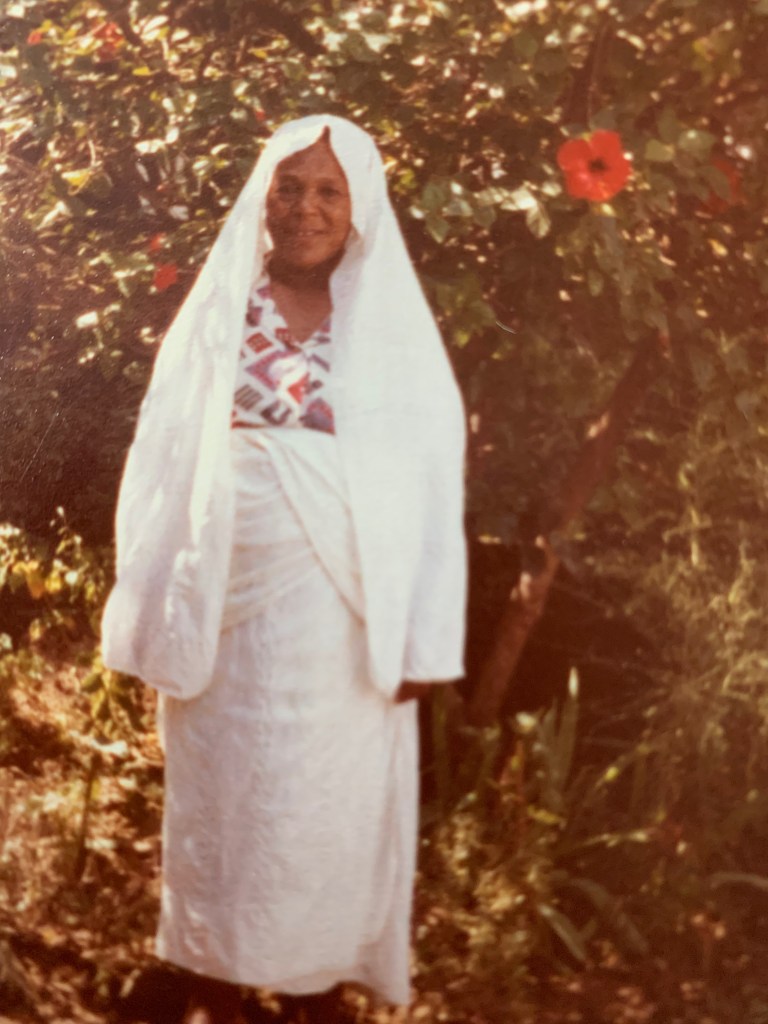

Now, there are times when I miss Tunisia, I miss Zambia, I miss people who smell like people. It also occurs to me that we Americans may also not alway be so hygienic in the future, where world-class fires destroy huge portions of large states, where water is increasingly scarce, where hurricanes destroy electrical delivery systems and pumping systems. We may not wash our clothes as often, we may wear our clothes longer between washes, we may bathe less frequently – and we may smell like people.
Maskmaker, Maskmaker, Make Me a Mask
When I headed to the YMCA on Wednesday, it was with a heavy heart. I have loved the reservation only swimming; I have actually felt fairly safe with so few people, and the respect for protecting one another through keeping safe boundaries. Already rumors are abounding that the Governor is about to move rapidly forward with his “evidence based phase-in” headed toward the new normal, and will open gyms.
The same day, I received my word that my sister, who was very sick this winter and was told over and over by her doctor that it was only severe bronchitis, has tested positive for the corona virus antibodies. She had it all along. She kept asking. They told her no.
That, along with my mother’s death from the virus, makes me cautious. We come from long-lived people. We are no match for this virus.
So I headed into the Y knowing that once the gym gets back into full swing, I may have to withdraw until I am certain the virus has diminished in our area, and that the “evidence” is supported by full transparency of the medical examiner’s reports (currently being censored / withheld by executive decision of the very governor who is telling us we will go forward making decisions on these unavailable statistics, nationally reported to be underreported in the state of Florida.)
Excuse me, but WTF??
So I wear my mask into the Y, but I take it off to swim, all that chlorine and I feel safe enough. One of the lifeguards gasps and says “I LOVE your mask! Did you make it?” and I told her I did, that I had made about 150 and given them all away.
“Would you make me one just like it?” she asked.
The mask is made from some fabric I found in the souks in Tunis, when we lived there forty years ago. It is a deep sea blue, and purple, with some black and white for drama, with Berber jewelry motifs, triangles with five pendants, crescents, hands of Fatima. I bought ten yards of the fabric when I saw it, and have used it through the years in projects and quilts, a little here and a little there. I loved it that she had the same immediate emotional response to the fabric that I had.
“I don’t know if I have any of that fabric cut for masks,” I told her honestly, “but I will look.”
I swam my mile and headed home, feeling lighter. I had my tasks outlined for the day, but I am nearing a point where I can’t go further – I’ve already packed items we need, like that spare tube of toothpaste, and my vitamin C serum. I got a little carried away with the packing . . .
So I scurried the rest of the morning, full of energy, and in the afternoon I rewarded myself by allowing myself to go back to mask-making, a place I haven’t been for nearly a month. Masks aren’t hard; I figured out a way I like to do them, and I really like to do them, I like the process, and I love working with the fabrics. Even better, my young friend asking me to make her a mask just like mine breathed new life and hope into my spirit; I was able to finish about fifteen masks and offer them to other staff members and life guards when I went in this morning. As I was working with them, I found just one piece of the fabric she loved, that I love, and it was enough to make her a mask, just like mine.
People around here are more reluctant to wear masks than people in places like Seattle. When I walked in with a selection of masks in lovely fabrics, people were delighted to be able to choose something that pleased them. One lady, when I offered, didn’t hesitate, she said “Oh, I know exactly what I want, I can see it!” and chose a dark blue batik with turquoise stars. Another woman chose a Florentine style ivory print with cranberry and green, and gilt highlights. It was fun for me to see them choose, and I can only hope they will like them well enough to wear them as we work to protect one another from this lurking virus.
No, No, I Won’t Let Go!
AdventureMan and I make a great team. He is making sure the outside and the garage sparkle, and I am taking care of the inside, except for his office and his personal clothing. He likes to manage those himself, and I can’t blame him.
There are mornings I can barely face another day of packing, and then I remember Fort Leavenworth, when my riding boots arrived, packed without wrapping, in a box with my evening dresses. There was a part of me that felt outraged, dishonored. Who would do such a thing? And another part that empathized with the worker at the end of a long day, packing for a privileged woman who had riding boots, and evening gowns, and saying “what the hell.”
I learned a good lesson. If it matters to you, pack it yourself. If you can’t pack it yourself, have a special crate built for it.
We were so young, but we saved our money and bought a bird cage from Monsieur Samouda, in Sidi bou Said, Tunisia, and had a crate built for it. We’ve had it for forty years now with many moves and no damage.
I have packed a lot of boxes in my life.
I’m finding that there are some things I can part with easily. And then some things I can’t let go.
We met and spent our early married years in Germany. This was our wedding candle, lo, those many years ago. I had to stop burning it on our anniversaries when it started to collapse. It still makes me smile. I can’t let go.
My Mother and Father were in the Wednesday night bowling league in Germany, and they were very good bowlers. They were also on the admin board of the league, and were in charge of the prizes, which they often won. Texting back and forth with my sisters today, I learned that they served on that committee to insure that each of the daughters received an identical crystal cookie tree, which my Mother won each year in the final tournament. Post-war Germany was a wonderland for Americans who lived there. I’m not ready to let this go. One sister let hers go long ago, the other is using hers to hold her jewelry.
I know I should let this pot go – I think it is a fish poacher – and I can’t. We bought it in the Souk al Hammadiyya in Damascus. I can tell I have cooked in it once or twice in the forty years I have owned it, not enough to make it valuable for its utility. The reason I can’t let it go is because of the artistry of the handle. Not even that it looks so beautiful, but the bird handle fits perfectly in your hand. It feels GOOD. I’ve never had any pot or pan that had such a sensuously lovely handle. Someone who made this handle really knew what he was doing, and created it with heart.
When my husband came home today, the first thing that happened when he saw the pot was that he reached for the handle, and then asked “are you thinking of parting with this?” I said “No, I can’t.”
I wish you could put your hand on this bird handle. It’s that special.
We have a family message thread with my son and his wife, who are moving to a larger home as we move to a smaller home. I often take photos and say “would you like this?” maybe with an explanation, and they say yes or no.
This time, AdventureMan texted back immediately: “Not the Kuwait Teapot from the Blue Elephant!” and I immediately packed it to take with us. When we first got to Kuwait, he planned to take me out for Valentine’s dinner, not realizing that it was one of the hugest date nights of the year in Kuwait. On Valentine’s Day, he called everywhere looking for reservations, but there were none to be had.
Being American, we like to eat earlier than Kuwaiti people, so I suggested we dress and go to the Blue Elephant, a favorite restaurant at the Hilton Hotel on the beach, where we were known. When we got there, there were only a few other couples.
“So go in there and beg,” I suggested with a grin, “Tell them we will eat quickly and be out in an hour.” I think he did exactly that. I don’t know what he said, maybe a little money changed hands, but very soon we were ushered to a table, and reminded that we needed to be out by eight, when the table was reserved.
We had a lovely dinner, at the end of which he bought me the little elephant teapot. What I love is that I am not the only one who can’t let go. 🙂
Farewell Viking Forseti, Hello Bordeaux and the Marche’ des Capucins
When we reach our cabin, after the farewell dinner with our friends, there is a card waiting for us, beautifully handwritten, to tell us that our taxi will be waiting for us at 0930, and Viking wishes us a safe trip. This kind of attention to detail makes for great customer relations.
Our friends are fretting; there is a nation-wide train strike which may – or may not – start tomorrow, as they are heading for the train station en route to Paris. It causes great consternation. We tell them that we are picking up our rental car at the same station, the Gare Sainte Jean, and that if there really is a train strike, to quickly go pick up a rental car (before everyone else tries to do the same) and drive to Paris. It’s not a long drive.
We have a leisurely breakfast and our luggage is picked up from outside our door. At 0920, we head outside, and we can see a car waiting. In Tunis, in Doha, we used to call these limo’s, they are a higher class of taxi. Often someone’s private car (then, in the Middle East, things have changed somewhat since then) you were given a phone number by a friend, and you only shared that number with people you know who would appreciate and not abuse the service. It was a beautiful, well kept car, no markings to indicate it was for hire. He took us directly to the hotel, which was not that easy to find. We thanked him, and set up a pick up for the next day, which was a Sunday.
We had found a hotel, The Grand Hotel Francais which is also a Best Western. It is beautifully located near the Grand Theatre and just up the street from Saint Andre’s. I can’t figure out how to make a mark on the map, but up in the upper right corner, just where the red line B (tram) makes a turn, you see Rue de Temple, and the Hotel is on that street. The location is very quiet, but it is walking distance to everything!
We loved this hotel. First, we loved the location. Second, even at 0930 in the morning, they had our room ready for us. We had been prepared to drop our bags in the hotel baggage room until official check-in time, but what joy it was to be able to go to the room directly.
While I am not a big fan of motel-modern, I am a fan of this room. I like space. The ceilings are very high. While the walls are plain, the room has a spacious feel.
The bathroom is also spacious, and very modern. It felt roomy, especially after the ship. Lots of towels, and big thick cotton bathrobes. The controls on the shower were sort of space-ship modern, you move this knob this way to control volume, and that ring that way to control desired heat, and how do you raise the shower-head and make it stay exactly where you want it? But it wasn’t rocket science, and once I figured it out I explained it to my husband. We ran into this configuration several times.
What contributes to the feeling of spaciousness are the floor to ceiling French doors out onto a balcony. I am a big fan of balconies. Below is the view to the right, which you will see again as the marathon runners run by later in the day/night.
Looking down this street, you can almost see Saint Andrews cathedral, the “temple” to which the rue runs.
We didn’t stay long, just long enough to leave our luggage and get what we needed for a busy day trying to do everything we wanted to do in Bordeaux. (We failed. Oh well, guess we’ll just have to go back again 🙂 )
I had a priority. I love markets. I wanted to see the Marche’ aux Capuchins. We have an all-city pass that lets us on all the trams and busses, and lets us into several museums, so we have that joyous feeling of knowing we can do anything!
We take the B line, heading South, and get off at the Place de la Victoire, where there is a huge beautiful arch. And look at the skies! It is a beautiful, warm day; there is a lot of excitement in the air because tonight is the famous Bordeaux marathon, a crazy night where the streets of the city close down and the runners get to race on the major roads of the city.
I love public art, don’t you? Look at this big bronze turtle, and her little one, right in the middle of the city of Bordeaux. I love it that she has food in her mouth, after all, this is Bordeaux. Look at the leathery texture, captured in bronze, of her skin. I always think of turtles as symbols of long life.
The walk looks short on the map, but the blocks have a longer feel. It is a little north African, lots of kebab places, wonderful exotic smells. We feel very much at home. We come to the entrance of the famous market.
This is one of the reasons we are here. We hunger for the pate’s of fall, the Forestiere, and other local specialities. This is heaven, even just to look, it is abundant!
Umm, below, there are often things we wouldn’t even think of as food. Pigs ears? Hoofs?
When we lived in Tunis, we shopped at the Marche’ Lafayette where families would sell their varieties of pasta like this. It was the tastiest pasta in the world, and so fresh it spoils you for the kind you buy in stores. We have no stove, no pots, no pans and it is all I can do not to buy some just because I can, because these are so tempting, so beautiful.
Quiches-by-the-slice
Fabulous old grains breads
In the center of this photo below are fish, translucent, almost transparent fish that look like a pile of cellophane in this photo, but are distinct fish. I’ve never seen them before, and wonder how they cook up? No, I don’t ask because these merchants are interested in making a sale, and I am rally just a voyeur.
Ahhh! These are famous. We are warned to get to the market early to try these, that they bring so many, and when they are gone, they are gone. Clouds of love, and oh, my, WOW.
A thin sweet crust, a sweet sort of cream meringue, truly a fabulous cloud 🙂
Plates of oysters, fresh from the sea, ready to eat!
The prices of oysters are controlled by the French government. Every place, we are told in Arcachon, charges about the same.
You pick out a variety of little tapas sandwiches and pay by the color of the stick.
Cucurbitacee are gourds; most of these appear to be pumpkin-like. This market was a heaven of squash and gourds.
Even as we leave the marche’ we see another sign for tonight’s Bordeaux Marathon Madness – the energy is everywhere!
Bordeaux/Dordogne Trip – We Owe it All to Martin Walker and Bruno, Chief of Police
Several years ago, I ordered a book recommended by Amazon. I do that from time to time, and I will tell you honestly, some of them are real stinkers.
This book, Bruno, Chief of Police, by Martin Walker, was delightful. So delightful I started looking for more of the series, some of which I was able to find used. So delightful, I shared the Bruno, Chief of Police with my husband, and he, too, was hooked.
If there is a genre I like, it is detective novels set in foreign locations, dealing with crimes that have to do with social issues current in the locale. The first I can remember is the Eliot Pattison series about Inspector Shan, a Chinese detective who falls on the wrong side of Chinese political correctness and ends up in a Tibetan jail, where he begins a series long association with Tibetan monks and the threat to Tibetan civilization that the Chinese pose. It is eye-opening reading.
The next series I discovered were the Barbara Nadel series set in Turkey with Inspector Cetin Ikhmen. Then the fabulous and prolific Donna Leon and Commisario Guido Brunette, set in Venice.
And actually, I don’t read all this books in sequence. I watch for books by these authors, and read them when they come out, not unlike my addiction to James Lee Burke and Dave Robicheaux, set in New Iberia, Louisiana and Montana.
That was a very long introduction to the idea that it makes travel in foreign lands much more user-friendly to have read books that put you on the ground, seeing what the people who live there might see. When we went to Venice, we went off the beaten track to eat at a restaurant that Commissario Brunetti recommends to a touring couple who witnessed a crime and made a report to him. It was a great adventure just finding this restaurant, Rossa Rosa (“Guido Brunetti Sent Us”) and it had delicious local food, no tourists. In Venice. Imagine. Now, too, when we read the newest Brunetti novel, or watch the German production of the Brunetti series, we feel a closer connection with Venice, a familiarity, because we have a “friend” on the inside. Or so we feel.
Bruno Correze, the Chief of Police in the fictional French village of St. Denise, along the Vezere river close to where it links with the Dordogne, loves his small town. In the very first volume, we meet his friends, we visit his home, we are with him when he prepares meals and entertains his friends (he uses a lot of duck fat) and we get to visit the markets and cafes with him. Every book, like the best of this genre, introduces us to at least one issue, social and/or criminal, past or present, which is manifesting itself as a problem in the Dordogne. The actual crime may or may not be the point of the novel, and the solutions are often very French.
We have devoured this series. We felt like we had been there. So we decided we needed to go there.
We visited the Dordogne – it seems like a short time ago – the last time, 35 years ago, when our son, now grown, was around 9. We made a special effort to make this a trip which was relevant to him, too. We visited Castelnaud, and spent hours with the trebuchets and mangonels, old weapons once the ne-plus-ultra of fighting off the enemy. We visited the old caves with early paintings, when they were still open to visitors.
We love France, we love traveling in France and we have never had a negative experience in France. While I once spoke French fluently – we lived in French speaking Tunisia – but language skills get rusty when they don’t get exercised. Oh, really, any excuse will do. Martin Walker’s books made us hungry, hungry for French foods and hungry just to be in France.
We booked a cruise out of Bordeaux, eight days of cruising on the Gironde, Dordogne and other rivers, visiting villages older than our entire nation, learning about major appellations, eating some fine food and drinking some very fine wine.
And then we picked up a rental car in Bordeaux and headed to the Dordogne. I’m going to tell you all about it, but first I want to share Martin Walker’s books with you. He, and Bruno, have a wonderful website where he tells you all his favorite places. As we read the Bruno books, we also take notes – which wine he chose to serve with the duck course, where he and his friends gathered for the wedding feast, etc. It was like having a friend who says “Oh, I am desolate I won’t be there, but here are all the places you need to go, restaurants you will like and oh, be sure to try this wine!” Hotel and restaurant recommendations are on the website under “Bruno’s Perigord”
Martin Walker’s Bruno, Chief of Police website
Here are the Bruno, Chief of Police books, in order, from a resource called How to Read Me, which puts the books in order. http://www.howtoread.me/bruno-chief-of-police-books-in-order/
1 Bruno, Chief of Police – Meet Benoît Courrèges, aka Bruno, a policeman in a small village in the South of France who has embraced the pleasures and slow rhythms of country life. But then the murder of an elderly North African who fought in the French army changes all that. Now, Bruno is paired with a young policewoman from Paris and the two suspect anti-immigrant militants. As they learn more about the dead man’s past, Bruno’s suspicions turn toward a more complex motive.
2 The Dark Vineyard – When a bevy of winemakers descend on Saint-Denis, competing for its land and spurring resentment among the villagers, the idyllic town finds itself the center of an intense drama. Events grow ever darker, culminating in two suspicious deaths, and Bruno finds that the problems of the present are never far from those of the past.
3 Black Diamond – Something dangerous is afoot in St. Denis. In the space of a few weeks, the normally sleepy village sees attacks on Vietnamese vendors, arson at a local Asian restaurant, subpar truffles from China smuggled into outgoing shipments at a nearby market—all of it threatening the Dordogne’s truffle trade and all of it spelling trouble for Benoît “Bruno” Courrèges, master chef, devoted oenophile, and, most important, beloved chief of police.
4 The Crowded Grave – It’s spring in the idyllic village of St. Denis, and for Chief of Police Bruno Courrèges that means lamb stews, bottles of his beloved Pomerol, morning walks with his hound, Gigi, and a new string of regional crimes and international capers. When a local archaeological team searching for Neanderthal remains turns up a corpse with a watch on its wrist and a bullet in its head, it’s up to Bruno to solve the case.
5 The Devil’s Cave – It’s spring in St. Denis. The village choir is preparing for its Easter concert, the wildflowers are blooming, and among the lazy whorls of the river a dead woman is found floating in a boat. This means another case for Bruno, the town’s cherished chief of police.
6 Bruno and the Carol Singers (short story) – Bruno is occupied with his Christmastime duties. From organizing carolers to playing Father Christmas for the local schoolchildren, Bruno has his hands full . . . at least until some funds raised for charity go missing.
7 The Resistance Man – First, there’s the evidence that a veteran of the French Resistance is connected to a notorious train robbery; then, the burglary of a former British spymaster’s estate; and, finally, the murder of an antiques dealer whose lover is conveniently on the lam. As Bruno investigates, it becomes clear that they are connected.
8 The Children Return (also known as Children of War) – Bruno’s village of St. Denis has been called many things, but a hotbed of international intrigue has never been one of them . . . until now. When an undercover agent is found murdered just as a prodigal son is set to retun from a grim tour in the Middle East, the small town suddenly finds itself host to a determined global tribunal, threatening the usual cheer brought by St. Denis’s annual wine festival.
9 A Market Tale (short story) – As summer blooms, the newest talk of the town is the rapport between Kati, a Swiss tourist, and Marcel, a popular stall owner whom Kati meets over his choice strawberries. None are happier than police chief Bruno to see Marcel interested in love again, but as his friend’s romance deepens, Bruno senses trouble in the form of Marcel’s meddlesome sister Nadette.
10 The Patriarch (also known as The Dying Season) – Bruno Courrèges is thrilled when he receives an invitation to the lavish birthday celebration of his childhood hero, World War II flying ace Marco “the Patriarch” Desaix. But when the party ends in the death of one of Marco’s longtime friends, Gilbert, it turns into another day on the job for St. Denis’s chief of police.
11 Fatal Pursuit – It’s the start of summer, and Bruno’s found himself the last-minute replacement navigator in a car rally race. The event has attracted a spate of outsiders with deep pockets, big egos and, in the case of one young Englishman, an intriguing story about a lost Bugatti Type 57C. When a local scholar turns up dead, Bruno suspects unnatural causes.
12 The Templars’ Last Secret – When a woman’s body is found at the foot of a cliff near the idyllic French town of St. Denis, chief of police Bruno Courrèges suspects a connection to the great ruin that stands above: a long-ago Knights Templar stronghold. With the help of Amélie, a young newcomer to the Dordogne, Bruno learns that the dead woman was an archaeologist searching for a religious artifact of incredible importance.
13 A Taste for Vengeance – When a British tourist fails to turn up for a luxurious cooking vacation in the idyllic village in the south of France that Bruno Courrèges calls home, the chief of police is quickly on the case. Monika Felder is nowhere to be found, and her husband, a retired British general, is unreachable.
14 The Chocolate War (short story) – Police chief Bruno enjoys wandering the stalls of the weekly market in the village of St. Denis as they are being loaded with wares. But when Bruno’s old friend Léopold from Senegal start selling African coffee and chocolate more cheaply than Bruno’s old friend Fauquet at his café across the square, a competition erupts between the vendors.
15 The Body in the Castle Well – When Claudia, a young American, turns up dead in the courtyard of an ancient castle in Bruno’s jurisdiction, her death is assumed to be an accident related to opioid use. But her doctor persuades Bruno that things may not be so simple. Thus begins an investigation that leads Bruno to Monsieur de Bourdeille, the scholar with whom the girl had been studying, and then through that man’s past.
How to read me: Bruno, Chief of Police
http://www.howtoread.me/bruno-chief-of-police-books-in-order/
I owe a big thanks to Martin Walker for giving us so much inside information which enhanced our trip so much. I will try to remember to give him credit along the way as I take you along with us on our trip.
“Do You Have a Heartbeat?”
This morning in Pensacola the temperature was a cool 71 degrees F. and the humidity was low. It makes all the difference in the world.
“How’s your day?” I asked my friend in the pool at the YMCA, and she grimaced. “I’m off to a bad start,” she said, “I hung my suit and towel and shoes on the line outside, and after the rain last night, everything was soaked this morning.
(We really needed the rain, and we got a soaker of a storm. Today, everything is blossoming in our yard and happy, moonflowers, African Irises, Ginger, plumbago, roses – they respond to a good soaking by blooming in delight.)
I grinned at her. “Did you wake up this morning? Do you have a heartbeat? Are you breathing? Are you here at the YMCA?” I was heartless, and persistent. She laughed.
I talked about the countries I’ve lived in; how in my first African country, Tunisia, back in the day, people competed for our garbage. My cleaning lady asked permission to take glass jars with lids, to take tuna cans. She asked that I give her any clothes I didn’t want. In the Middle East, there were restaurants where people waited near parked cars to beg for the leftovers we carried. Anything. Anything would do.
Some people didn’t have a towel, much less a swim suit, or shoes to hang on a line.
We live in the midst of plenty. Even Tunisia, when we went back twenty five years later, didn’t have the poverty we saw when we lived there. We didn’t see clubbed feet, we didn’t see hunched backs, we didn’t see crossed eyes. The little villa we had lived in had a second floor. There were signs everywhere of prosperity. We didn’t see any beggars, not one.
When I get all wrapped around the axel about the state of civility in my country, about our abuses at the border, about our increasing bureaucratic hardness-of-heart toward the least of these, I need to stop and take a deep breath and spend time acknowledging how very blessed we are. It gives me strength to go on fighting.
In the Wadi
A lovely quiet Saturday morning; the cats let me sleep in a little bit, I rise relaxed and happy to feed them and to read The Lectionary before my day gets fully underway.
The Old Testament story is David and Goliath.
1 Samuel 17:31-49
31 When the words that David spoke were heard, they repeated them before Saul; and he sent for him. 32David said to Saul, ‘Let no one’s heart fail because of him; your servant will go and fight with this Philistine.’33Saul said to David, ‘You are not able to go against this Philistine to fight with him; for you are just a boy, and he has been a warrior from his youth.’ 34But David said to Saul, ‘Your servant used to keep sheep for his father; and whenever a lion or a bear came, and took a lamb from the flock, 35I went after it and struck it down, rescuing the lamb from its mouth; and if it turned against me, I would catch it by the jaw, strike it down, and kill it. 36Your servant has killed both lions and bears; and this uncircumcised Philistine shall be like one of them, since he has defied the armies of the living God.’ 37David said, ‘The Lord, who saved me from the paw of the lion and from the paw of the bear, will save me from the hand of this Philistine.’ So Saul said to David, ‘Go, and may the Lord be with you!’
38 Saul clothed David with his armour; he put a bronze helmet on his head and clothed him with a coat of mail. 39David strapped Saul’s sword over the armour, and he tried in vain to walk, for he was not used to them. Then David said to Saul, ‘I cannot walk with these; for I am not used to them.’ So David removed them. 40Then he took his staff in his hand, and chose five smooth stones from the wadi, and put them in his shepherd’s bag, in the pouch; his sling was in his hand, and he drew near to the Philistine.
41 The Philistine came on and drew near to David, with his shield-bearer in front of him. 42When the Philistine looked and saw David, he disdained him, for he was only a youth, ruddy and handsome in appearance. 43The Philistine said to David, ‘Am I a dog, that you come to me with sticks?’ And the Philistine cursed David by his gods. 44The Philistine said to David, ‘Come to me, and I will give your flesh to the birds of the air and to the wild animals of the field.’ 45But David said to the Philistine, ‘You come to me with sword and spear and javelin; but I come to you in the name of the Lord of hosts, the God of the armies of Israel, whom you have defied.46This very day the Lord will deliver you into my hand, and I will strike you down and cut off your head; and I will give the dead bodies of the Philistine army this very day to the birds of the air and to the wild animals of the earth, so that all the earth may know that there is a God in Israel,47and that all this assembly may know that the Lord does not save by sword and spear; for the battle is the Lord’s and he will give you into our hand.’
48 When the Philistine drew nearer to meet David, David ran quickly towards the battle line to meet the Philistine. 49David put his hand in his bag, took out a stone, slung it, and struck the Philistine on his forehead; the stone sank into his forehead, and he fell face down on the ground.
So it’s an interesting story, and, as it turns out, plausible. When we lived in Tunis and in Amman, we often saw young men with slings, and they were amazingly proficient.
What caught my eye in this reading was that David picked up five smooth stones from the wadi, and that one work brought back so many associations. We often camped, in Tunis, and in Jordan, and from time to time we set up camp in a wadi. It always made me nervous, thinking that a sudden, unexpected, unseasonal, and, frankly, totally unlikely storm could come along and wash us to a tragic death. That kind of timidity came with motherhood, and an understanding of how little control I had as a mother, protecting children from all the possible ways children can be injured, sometimes fatally. Lucky for me (she says wryly) she was always outvoted by the testosterone in the family, and the dearth of likely camping spots.
In Tunisia, the Tunisia before Tunisia became developed, we would drive around to old ruins, Roman, pre-Roman, ancient ruins, and camp. There were no toilets, no showers. We had a Volkswagon bus. From time to time when nature called, I would turn to AdventureMan and say “I need a wadi.”
He knew what I meant. He would find a bridge over a wadi in a seemingly deserted place, and I would jump out, pee quickly, and run for the bus. I always wore a wrap skirt or a jean skirt, so much quicker.
“Why the hurry?” you might ask.
We learned, from the very beginning, that no matter how deserted a place might appear, that within two minutes of stopping curious children would begin to show up. Mostly they were just interested that something different was happening, sometimes they wanted “bonbon.” We always carried a package of hard candy; anything else would melt in the heat, in these days before Volkswagen buses had air conditioning.
As for showering – we didn’t. At least most of the time, we didn’t. One time, one December, just after Christmas, there was a desert festival in Douz, and we went on a week-long camping trip. We camped in an oasis / field just outside of Douz, and right next to the Bedouin campers, who would come to sit with us around the campfire. During the day, there were parades of camels, and at night, huge bonfires and poetry contests.
The desert nights were cold, so bitterly cold I’ve never been colder, not even in Alaska. I zipped two sleeping bags together and had my son in mine with me; the cold was so intense it robbed the heat right out of our bodies, and I could protect him with mine. AdventureMan said it was the only time in his life that he considered peeing in his sleeping bag rather than leaving it’s small protection to walk outside the camp (he braved the walk!)
When the festival ended, we drove across the Chott al Jerid, a great salt flat, huge and empty, and then up into the mountains. I think we headed to Al Mitlawi, and from there, followed a crude map to a waterfall, near which we camped. On New Year’s Eve day, we got up early and headed to the waterfall, which we had all to ourselves, for a shower. It’s one of the most amazing memories I have, showering under that waterfall in a dry and arid part of the world. It was so early, and so remote, no children showed up. 🙂
Update: As I am reading the news, I see that in May the U.S. Department of State issued a travel warning for Tunisia, specifically the southeastern and mountainous parts, because of terrorism.
To Have Diplomatic Immunity, You Actually Need Diplomatic Credentials
Not only did Sheikh Khalid bin Hamad al Thani rent this house before he fled the USA fearing arrest for reckless driving, but now Saudi Prince Majed Abdelaziz Al-Saud rents the same house and is arrested after forcing some young woman to have oral sex. She was seen escaping the house and crawling over the wall to get away. Sorry guys. You may get away with these things in Qatar and Saudi Arabia, but not in the USA. And it’s just embarrassing to claim diplomatic immunity when it’s so easy to prove you have none. We have to play by your rules when we live in your country. It’s called being a good guest. Please pay us the same courtesy. It’s our country.

From today’s AOL News/Fox News:
A Saudi prince was arrested Wednesday at a compound near Beverly Hills in connection with an alleged sex crime after a bleeding woman was seen trying to flee the grounds.
Majed Abdulaziz Al-Saud, 28, was arrested on suspicion of forced oral copulation of an adult, according to the Los Angeles Times. Police were called to the gated compound after a caretaker at the home reported the disturbance. The Times, citing jail records, reports Al-Saud was freed on $300,000 bail Thursday afternoon. LAPD officer Drake Madison told the newspaper the suspect was booked after 4 p.m.
Capt. Tina Nieto said the police department has a consul liaison that checks with foreign nations’ consulates regarding a certain person’s diplomatic immunity. Nieto said Al-Saud doesn’t have immunity in this case.
Tennyson Collins, a neighbor, told the Times he saw a bleeding woman trying to scale the property’s 8-foot wall on Wednesday. When Collins returned home from work, police followed his car through the gates and then onto the property. He said officers escorted about 20 people out of the compound, most of them staff members.
Police said Al-Saud was renting the home, which Zillow values at $37 million. Collins said different foreign nationals have been renting out the home for weeks at a time over the past year.
Earlier this month, a Qatari prince, Sheikh Khalid bin Hamad al Thani, was videotaped racing a yellow Ferrari through Beverly Hills at speeds of up to 100 miles per hour, blowing through stop signs and frightening residents. Al Thani later denied driving recklessly and claimed he had diplomatic immunity, Beverly Hills police said. Authorities consulted with the State Department and the Qatar consulate and determined he did not have diplomatic immunity, police Chief Dominick Rivetti said during a Sept. 17 news conference.
Al Thani reportedly flew back to Qatar before he could be arrested.
What Do You Wear When It Gets Really Hot?
 The people in my group last week suffered greatly in the high temperatures and high humidity we are experiencing. I must be adapting a little; I remember being thankful for the breeze.
The people in my group last week suffered greatly in the high temperatures and high humidity we are experiencing. I must be adapting a little; I remember being thankful for the breeze.
“What do you wear when it gets this hot?” they asked me, “like around the home?”
I laughed. I learned a thing or two in Tunis, in Amman, in Tabuk and Riyadh, in Kuwait and in Doha. At home, I dress like local women, in long loose dresses.
Or worse. I dress like their maids. In the souks you could find wonderful, 100% cotton dresss that were loose and flowing, and that is good in hot weather so the air can circulate. Some of the dresses were nicer, but the dresses I liked a lot for just being around the house doing what people do, like making sure the dishes are done and a meal prepped, doing a little quilting or reading . . . you could buy these great little dresses for about $3.00 in the souks. Not only were they practical – especially when you live in a house with a cat, and always put on “real” clothes just as you are about to run out the door so you don’t have any cat hair on you – but they came in great colors and prints, designs that made me happy to put them on.
Now, one of my all time favorite dresses, in purple and black, has bit the dust. I liked it because it had some geometrics, and the geometrics changed, and – it was purple. I have worn it for about six years now, and I have worn it out. I mended it several times when the underarm seams ripped:

But now, it has gotten all soft, so soft the material just rips easily with holes that cannot be mended.
I like this dress so much I am saving it and cutting it up so it will have another new life as a quilt 🙂
And I am thinking it is time to plan a trip back to Doha and Kuwait to replenish my hot weather dresses 🙂

